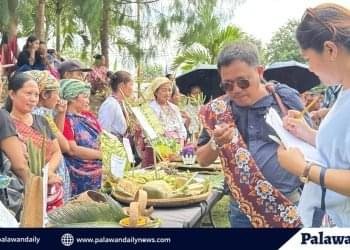The Philippines has been working hard to resolve the country’s insurgency. At first, the focus was mainly on using military strategy to handle the situation. But now, things are changing, and we realize that to keep our nation safe truly, we need to look at not only military actions but also other vital factors like politics, society, and the economy.
One program, the Oplan Lambat Bitag, showed us that using solely military tactics without considering other factors can sometimes create more problems, especially when dealing with people who claim to be “Robinhood for the masses.
” Insurgency tends to grow when different armed groups break away, causing us to rethink how we’re trying to stop it. We now understand that every part of our government has a role in meeting people’s needs. This is part of a new way of doing things, the whole of-nation approach.
Oplan Bayanihan was inspired by this idea and set the foundation, leading to stakeholder engagements and inter-agency collaborations, emphasizing socioeconomic perspectives and the implementation of Executive Order 70 to End Local Communist Armed Conflict. It focused on not just using military actions but also on working with people and understanding their needs.
Because of these efforts, we’ve started programs like the Enhanced Comprehensive Local Integration Program. This program, led by the Peace, Law enforcement, and Development Support (PLEDS) cluster, help keep the peace and create economic opportunities. As a result, our country is becoming more stable, with less internal unrest.
Nevertheless, there remains a pressing need to enhance our law enforcement and national defense. Our country’s growth depends on our ability to protect our rights, resources, and independence, which are all vital for our economy. This imperative aligns seamlessly with a broader initiative to foster unity, encapsulated in the ongoing campaign known as “Pagkakaisa,” a rallying call that the PLEDS cluster aims to strengthen and empower. Outlined in the Armed Forces of the Philippines (AFP) PLEDS Plan 2023 to 2028, a strategic shift is underway. The military, once primarily focused on addressing internal threats, is now strategically transitioning to territorial defense. This shift signifies a proactive stance, ensuring that our armed forces are not only adept at handling internal challenges but also robustly positioned to protect and preserve our national territories.
One big concern is ensuring our defense is strong enough for diplomacy. This means strengthening our modernization efforts and making sure our people are well trained for different missions. By doing so, we empower the AFP to concentrate on safeguarding our nation, securing our territory, and being prepared for any challenges that may arise.
All of us need to support the effort of improving our defense capabilities. As we face new challenges in dealing with other countries and work towards a safer and more prosperous future, we need everyone’s help.
The Philippines is on a journey to sustainable security and prosperity, and it involves looking at the bigger picture beyond just military strategies. It’s about working together, building unity, and addressing socio-economic disparities. This shift shows that we’re not just trying to combat insurgencies but working to create a stable and progressive country for all



















Discussion about this post